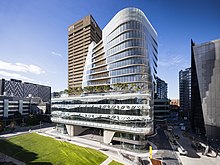Coral Nurture Program, United Nations partner on global action on ecosystem restoration
The Coral Nurture Program (CNP) has been named an Official Actor in the United Nations Decade on Ecosystem Restoration.
The UN Decade on Ecosystem Restoration aims to prevent, halt and reverse the degradation of ecosystems on every continent and in every ocean.
The UN said the focus on important work in this area can help end poverty, combat climate change and prevent a mass extinction.
The CNP, a world first partnership between researchers at the University of Technology Sydney (UTS) and the Australian reef tourism industry, works to replant coral at scale to boost resilience and assist recovery at reef sites with a high socio-economic and cultural value.
In late 2022, a UN-backed report recommended that the Great Barrier Reef be placed on the world heritage ‘in danger’ list, citing threats from climate change and what it called slow progress on improving water quality.
“The Coral Nurture Program is focussed on protecting reef ecology as well as safeguarding local livelihoods,” said Dr Emma Camp, Team Leader, UTS Future Reefs Program.
“It’s both humbling and gratifying that the UN has acknowledged the importance of CNP’s global effort and contributions to ensure the survival of our coral reef ecosystems.”
Our core values drive us to not only conduct meaningful research, but to also translate it into tangible action for the greatest impact.
Professor Kate McGrath
Deputy Vice-Chancellor (Research)
The UN has stated that Ecosystem Restoration is underpinned by global contributions, broad engagement and knowledge integration.
“This unique program enables stakeholders to undertake proactive local restoration actions to assist in keeping sites healthy and assist recovery where needed. This helps reef eco-tourism continue playing a key conservation role by showing visitors how amazing the Reef is and raising awareness of its threats and the solutions that involve the whole community. said John Edmondson, CNP Co-Founder and owner of Wavelength Reef Cruises.
Professor Kate McGrath, UTS Deputy Vice-Chancellor (Research) said the UN’s ambitious and crucially important goal of global ecosystem restoration is a call to action for leaders and individuals alike, to work together towards a sustainable future for our planet.
“Our core values drive us to not only conduct meaningful research, but to also translate it into tangible action for the greatest impact. We will use our knowledge and passion to create positive change and leave a lasting legacy for future generations,” said Professor McGrath.

